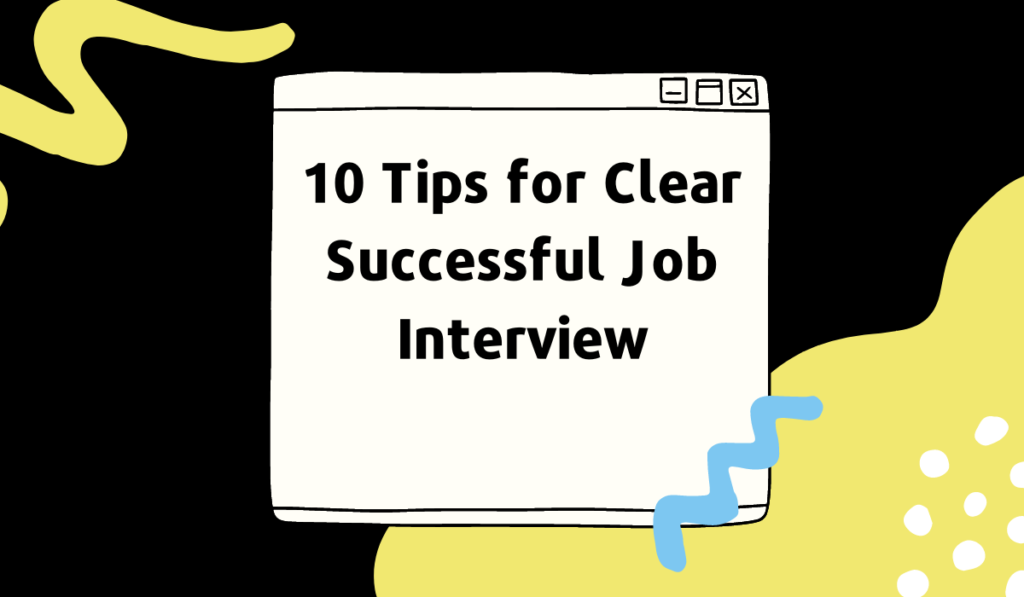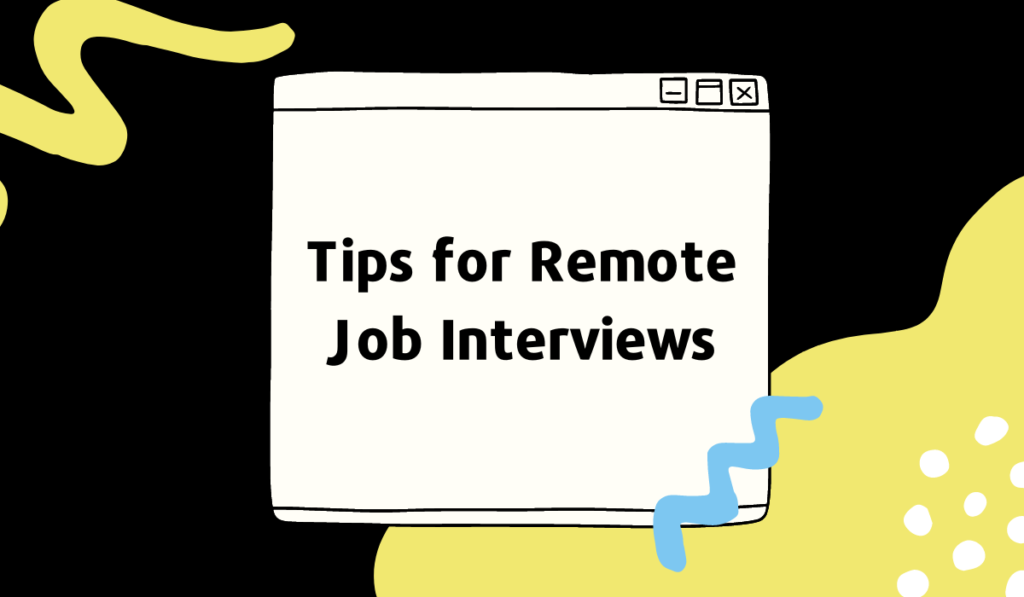Avoiding common interview mistakes is crucial to making a positive impression on the interviewer.
Here are some common interview mistakes to avoid:
- Lack of Preparation: Failing to research the company, job role, and industry can give the impression that you’re not genuinely interested.
- Arriving Late: Punctuality is essential. Arriving late can create a negative first impression.
- Inappropriate Attire: Dressing too casually or too formally for the company culture can be off-putting. Research the dress code in advance.
- Poor Body Language: Avoid slouching, excessive fidgeting, or avoiding eye contact. Good posture and confident body language are important.
- Not Listening: Pay close attention to the interviewer’s questions and respond directly. Rambling or not answering the question can be detrimental.
- Negative Attitude: Complaining about past employers or experiences reflects poorly on your attitude and professionalism.
- Inadequate Communication: Use clear and concise language. Avoid jargon or speaking too fast.
- Lack of Questions: Not asking questions when given the opportunity can suggest a lack of interest. Prepare thoughtful questions in advance.
- Overconfidence: Confidence is good, but coming across as arrogant can be a turn-off for interviewers.
- Underconfidence: On the other hand, excessive nervousness or low self-confidence can also hinder your performance.
- Talking About Salary Too Early: Discussing compensation before the interviewer brings it up may appear premature.
- Overuse of Fillers: Repeatedly saying “um,” “like,” or “you know” can make you appear less confident.
- Not Highlighting Achievements: Don’t forget to share your accomplishments and how they relate to the job.
- Not Following Up: Failing to send a thank-you note or email after the interview can be seen as a lack of courtesy.
- Overlooking Soft Skills: Remember to emphasize your soft skills, such as teamwork, communication, and problem-solving abilities.
- Being Too Generic: Tailor your answers to the specific job and company. Generic responses can indicate a lack of genuine interest.
- Not Handling Stress Well: Interviews can be stressful, but showing that you can handle pressure gracefully is essential.
- Bringing Up Personal Issues: Keep personal problems or issues out of the interview conversation.
- Speaking Ill of Previous Employers: Even if you had a negative experience, avoid criticizing former employers.
- Not Following Instructions: Pay attention to any instructions or requests given during the interview. Failure to do so can indicate a lack of attention to detail.
- Lack of Enthusiasm: Demonstrating a lack of enthusiasm for the job or the company can be a deal-breaker.
- Overly Long Responses: Keep your answers concise and relevant. Rambling can make you seem unfocused.
- Inadequate Research: Not knowing basic information about the company, such as its products, services, or recent news, can signal disinterest.
- Not Demonstrating Skills: If you possess specific skills required for the job, be sure to provide examples of how you’ve used them in the past.
- Ignoring Nonverbal Cues: Pay attention to the interviewer’s body language. If they seem disengaged or rushed, adjust your responses accordingly.
- Failure to Close: At the end of the interview, express your interest in the position and inquire about the next steps.
- Not Addressing Weaknesses: If asked about weaknesses, avoid evading the question. Acknowledge areas for improvement and discuss how you’re working on them.
- Forgetting to Bring Documents: If asked to bring specific documents (e.g., references, portfolio), failing to do so can reflect negatively.
- Lack of Cultural Fit: Failing to align your values and personality with the company’s culture can hinder your chances of being hired.
- Overloading with Information: While it’s essential to share relevant details, providing too much information can overwhelm the interviewer.
- Interrupting the Interviewer: Wait for the interviewer to finish speaking before responding. Interrupting can be seen as rude.
- Not Showing Appreciation: After the interview, express your gratitude for the opportunity to interview for the position.
- Inconsistent Information: Ensure that the information on your resume aligns with what you say during the interview. Inconsistencies can raise red flags.
- Failure to Demonstrate Adaptability: Failing to adapt to changes in the interview format or content can demonstrate inflexibility.
- Not Demonstrating Interest in Growth: Employers often seek candidates who are eager to learn and grow. Show your commitment to personal and professional development.
- Not Knowing Your Own Resume: Be prepared to discuss any part of your resume in detail. Avoid being caught off guard by questions about your own experiences.
- Overusing Clichés: Phrases like “team player” or “detail-oriented” can sound generic. Provide specific examples to illustrate your qualities.
- Not Being Yourself: While it’s essential to be professional, being overly rehearsed or inauthentic can hinder rapport-building.
- Leaving Out Relevant Achievements: Don’t forget to mention accomplishments, awards, or certifications that are directly related to the job.
- Not Addressing Employment Gaps: If you have employment gaps, be prepared to explain them honestly and positively.
- Talking About Personal Issues: Keep the conversation focused on your professional qualifications and experiences. Avoid discussing personal matters or unrelated topics.
- Lack of Clarity: Ensure that your responses are clear and to the point. Vague or ambiguous answers can leave the interviewer confused.
- Using Inappropriate Language: Avoid using slang, profanity, or overly casual language during the interview.
- Not Expressing Interest in the Company’s Mission: Show enthusiasm for the company’s mission and values, if applicable.
- Failing to Mention Transferable Skills: Highlight how your skills from previous roles can be applied to the new job, even if they aren’t an exact match.
- Not Providing Specific Examples: When discussing your accomplishments or experiences, provide concrete examples and results to back up your claims.
- Rambling About Personal Life: While some personal anecdotes can humanize you, avoid going off-topic or sharing lengthy personal stories.
- Not Addressing Questions Effectively: If you don’t understand a question, ask for clarification rather than guessing what the interviewer meant.
- Overusing Jargon: While industry-specific terminology can be valuable, don’t overdo it. Ensure that your responses are easily understood by a broader audience.
- Being Too Passive: Actively engage in the conversation. Don’t wait for the interviewer to lead every aspect of the discussion.
- Not Sending a Thank-You Note: After the interview, send a well-crafted thank-you email to express your appreciation for the opportunity and reiterate your interest.
- Focusing Solely on Salary: While compensation is important, don’t make it the primary focus of the interview. Wait for the right moment to discuss salary.
- Not Adapting to the Interviewer’s Style: Pay attention to the interviewer’s communication style and adapt accordingly. Some may prefer a more formal conversation, while others may be more casual.
- Overconfident Body Language: While confidence is key, avoid coming across as arrogant or overly aggressive in your body language.
- Not Demonstrating Problem-Solving Skills: Many employers value candidates who can think critically and solve problems. Share examples of how you’ve overcome challenges.
- Bringing Up Personal Goals Unrelated to the Job: Keep the conversation focused on your professional goals and how they align with the position.
- Being Too Negative About Previous Employers: If discussing past job experiences, frame any negative aspects in a constructive manner and emphasize what you learned.
- Not Asking for Feedback: If the interview doesn’t go as expected, consider asking for feedback to learn from the experience.
- Forgetting to Research the Interviewer: If possible, research the interviewer’s background and role within the company to tailor your responses effectively.
- Being Disengaged: Stay engaged and actively participate throughout the interview. Avoid appearing disinterested or distracted.


